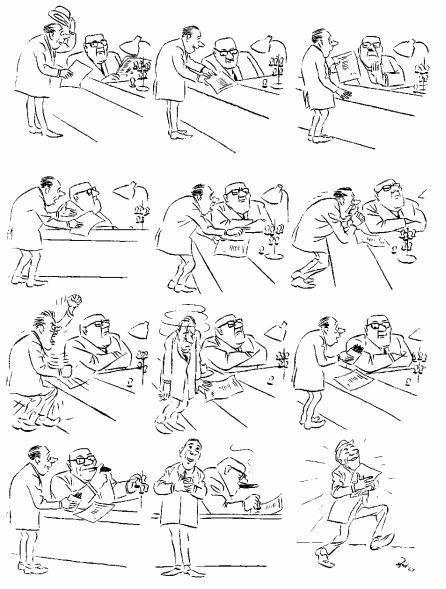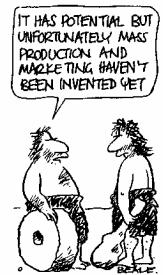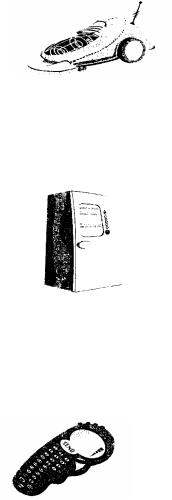
ГМУ учебник по английскому
.pdf
CASE 1
John Humphries, aged 62, is a lorry driver who is proud of being well-dressed for work. However, his employer told him that he must not come to work in a collar1 and tie2 to drive his 17tonne lorry. If he did so, he risked to be sacked3. When working, Mr. Humphries, an ex-Royal Airforce man, wore dark blue trousers, a light blue shirt, and a red and grey striped tie. He felt he looked excellent and impressed the customers.
“If you present yourself well, you look good and get respect4,” he said.
Mr. Humphries' employers were not impressed when he refused to give up his collar and tie. They wanted him to conform5 to the company's new image of clothing such as T-shirts or sweat shirts. They even wanted to sack him if he didn't accept their new dress code. Union officials advised him to accept the change and follow the company's policy. He agreed.
Notes:
1.collar – воротник.
2.tie – галстук.
3.respect – уважение.
4.to conform – соответствовать.
CASE 2
Yoshiaki Nishiura, a 25-year-old lorry driver from western Japan, was sacked because he dyed1 his hair brown. (This is a popular fashion with a growing number of young Japanese.) Although he apologised2 and dyed it black again, he was still fired3. His employer, Mr. Yamago, believed that behaviour like Mr. Nishiura's made company discipline worse and ruined morale. He blamed4 it on American influence. “We need drivers to keep a professional appearance to make a good impression,” he said. A Japanese journalist said, “Japanese firms expect all employees to look the same and think the same. When you come into a company, you sign away your human rights.”
Mr. Nishiura is going to sue his employer for unreasonable dismissal.
Notes:
1.to dye – красить.
2.to apologise – извиняться.
3.to fire – разг. увольнять, выгонять.
4.to blame – порицать, обвинять.
2. Discuss these questions.
What do you think of: a) the employers' decisions? b) the employees' reactions? How important is your personal appearance at work?
Think about formal clothing, uniforms, men with earrings, and tattoos,
etc.
11
PDF created with FinePrint pdfFactory Pro trial version www.pdffactory.com
Reading III: Read the story.
The Double Life of Alfred Bloggs
These days, people who do manual1 work often receive far more money than clerks who work in offices. People who work in offices are normally referred to as “white collar workers” for the simple reason that they usually wear a collar and tie to go to work. Such is human nature2, that a great many people often want to sacrifice3 higher pay for the privilege of becoming white collar workers.
This can give rise4 to curious situations, as it did in the case of Alfred Bloggs who worked as a dustman5 for the Ellesmere Corporation.
When he got married, Alf was too uncomfortable to say anything to his wife about his job. He simply told her that he worked for the Corporation. Every morning, he left home dressed in a fine black suit. Then he changed into overalls6 and spent the next eight hours as a dustman. Before returning home at night, he took a shower and changed back into his suit. Alf did this for over two years and his fellow dustmen kept his secret. Alf’s wife has never discovered that she married a dustman and she never will, for Alf has just found another job. He will soon be working in an office as a junior clerk. He will earn only half as much as he used to, but he feels that his rise in status is well worth the loss of money. From now on, he will wear a suit all day and others will call him “Mr. Bloggs”, not “Alf”.
Notes:
1.manual – ручной.
2.Such is human nature – Такова человеческая природа.
3.to sacrifice – жертвовать.
4.to give rise to – быть поводом чего-либо.
5.dustman – мусорщик.
6.overalls – рабочая одежда.
Give your opinion to the information you have read. Retell the story. Reading IV: Read the story.
A job in Mexico
It happened some years ago. Two of my friends lived in a small town near Liverpool. They were out of work and were happy to agree to any job. Their names were Stevenson and Black. Stevenson was a very talented engineer, and he had a large family and no money to live on his life was very difficult.
One day when I was coming back from my office I saw Stevenson. He was going along the street with a suitcase in his hand. Stevenson had read an advertisement in a newspaper that a manufacturing plant of chemical equipment wanted an engineer.
12
PDF created with FinePrint pdfFactory Pro trial version www.pdffactory.com
“You see, I must get that job. I’ve got a large family.”
“Why must you go to Liverpool yourself?” I asked, “It’s better to send the documents by airmail.” “I think,” Stevenson answered, “many people want to get the job and I’m sure all of them will send letters. If I get there before the manager of the plant receives the letters I think I’ll be able to get the job.”
Stevenson was right. He received the job.
My other friend Black had lost three or four jobs though he was a very good clerk. I told him Stevenson’s story. The story impressed him. A few days later I met Black with a suitcase in his hand. “Where are you going” I asked him. “To Mexico,” was the answer. “A bank there requires a clerk. I have sent my documents by post, but to settle the matter sooner I decided to go there myself. I remember the story you told me the other day about Stevenson.”
So black went to Mexico City. But his letter had come there three days earlier. When he came to the Bank and spoke to the assistant-manager, the assistant-manager said, “I’m sorry to say we have already got a man. But I’ll clarify the matter with the manager”. And he left the office.
“Yes,” the manager said, “I have received a letter from a man who lives near Liverpool. His name is Black. A good young man, he suits us right. I’ve sent him a telegram to come here immediately and we’ll keep the job for him for 10 days.”
“There is a man outside,” said the assistant-manager, “who wants to get this job.”
“But we’ve got this man Black and we’ll wait for him.”
Black had not heard the conversation between the manager and his assistant. He had to go back home. But as he had spent all his money and nobody in Mexico could help him it took him two months to get back to England. There he found the telegram, which was waiting for him.
Say what you have learned from the story about:
1.Stevenson and the way he got the job; 2. Black and his problems.
Think and answer.
1.Why was it difficult for Stevenson and Black, good specialists, to find a job?
2.Why did the writer recommend Stevenson to send his documents by airmail?
Why didn’t Black go back to Mexico when he got the telegram?
¨Grammar snack: Put the verbs into the correct form.
AN ITNTERVIEW FOR A JOB
On Wednesday I had an important interview for a job. I (get up) ____ at 7 o’clock in the morning and (shave) ____ carefully. I (put on) ____ my best jacket and trousers. I (must, travel) ____ by train, so I (walk) ____ to the station.
On my way I (see) ____ a man who (paint) ____ his fence with red paint.
13
PDF created with FinePrint pdfFactory Pro trial version www.pdffactory.com

The man (notice, not) _____ me: he (look) _____ at the fence. Then he (turn)
____ suddenly and (splash) _____ my beautiful trousers! The man (apologise)
____ to me, but the damage (already, do) _____ . “If I (go) _____ home, I (be late) ____ for the interview,” I (think) ____. There (be) a department store not far from the station, so I (decide) ____ to bye a new pair.
I (find) ____ a nice pair of trousers and since I (be) _____ in a hurry, I (decide)
____ to change on the train. The shop (be) ____ full, so I (pay) ____ quickly for my trousers, (take) ____ my shopping bag and (leave) ____.
I (arrive) ____ at the station just in time to catch the train. Now I (be sure)
____ that I (be late, not) ____ for the interview. I (smile) ____ happily at an elderly lady
who (watch) ____ at my trousers and (go) ____ to the toilet to change. I (throw) ____ my discoloured trousers out of the window. Then I (open) ____ the bag to get my new ones, but all I (find) ____ was a pink woolen sweater!
— Skills: 1.Comment on the picture.
14
PDF created with FinePrint pdfFactory Pro trial version www.pdffactory.com
?2.Translate from Russian into English using a dictionary.
15 вопросов претенденту
Вы впервые столкнулись с проблемой приема на работу. Перед вами стоит претендент на вакантную должность, а вы не знаете, как построить с ним беседу. Вот вопросы, задав которые, вы сможете выяснить все, что вас интересует.
* Почему вы обратились с просьбой о приеме на работу именно к
нам?
*Что вы знаете об этой должности и о предприятии?
*На какую зарплату вы рассчитываете?
*Что вы могли бы рассказать о себе?
*Как вы оцениваете свои сильные и слабые стороны?
*Какого типа работу вы предпочитаете?
*Какие результаты доставляют вам наибольшее удовлетворение?
*Какая была ваша самая серьезная ошибка?
*Почему вы оставили свою прежнюю работу?
*Бывали ли у вас конфликты непроизводственного характера?
*Каковы ваши цели в жизни?
*Как вы планируете достичь их?
*Каким вы представляете свое будущее через 5, 10 лет? Желательно дополнить этот список еще одним вопросом:
*Как вы будете действовать в критической ситуации?
При этом надо заранее продумать и описать претенденту какую-то нестандартную ситуацию.
Lesson 2. Innovation
“Man will never fly, not in a thousand years”
Wilbur Wright (1867-1912), American aviation pioneer
&Useful vocabulary
1.to invent - изобретать: Algebra was invented by the Arabs.
2.invention – изобретение, выдумка: The whole story is an absolute invention. I don’t believe a word of it!
3.to research – исследовать: This book has been very well researched.
4.to develop – развивать: They do exercises to develop their muscles.
5.development – развитие: This was an important stage in the country’s development.
R&D – research and development
6.brainwave - внезапная свежая идея: I’ve just had a brainwave. Here’s what we should do!
7.blueprint – фотокопия: The report is a blueprint for the reform of the
15
PDF created with FinePrint pdfFactory Pro trial version www.pdffactory.com
nation’s tax system.
8.prototype – прототип, первоисточник: “Prototype” means the first form of smth., for example of a machine or industrial product, from which all later forms develop, sometimes with improvements.
9.setback – препятствие: There is a major setback to our hopes of reaching an agreement
10.breakthrough – прорыв, достижение: What is the major breakthrough in the development of agriculture?
11.to be successful – быть успешным: I’m afraid my attempt to make a cake wasn’t very successful.
12.to make a success – делать успехи: I hope she makes a success.
13.to sweep away – удалять, уничтожать: This old machine was completely swept away.
14.exception – исключение: You must answer all these questions without exception.
15.dominance – превосходство: Our dominance of the market was reached by this new product.
16.quickly – быстро: You got here quickly; did you come by car?
17.to appear – появляться: Her new book will be appearing in the shops very soon.
18.to disappear – исчезать: These beautiful birds are fast disappearing.
19.to come on the scene – появиться: He came on the scene just when his country needed a great man to lead them.
20.closely related – тесно связанный: The fall in the cost of living is closely related to the drop in the oil price.
21.to compete – конкурировать, соревноваться: Several companies are competing to get the contract.
22.competitive – конкурентоспособный: Jane’s got a very competitive
nature.
23.advantage – преимущество: One of the advantages of this method is that it saves a lot of fuel.
24.disadvantage – недостаток: If you don’t speak good English, you’ll be at a big disadvantage when you try to get a job.
25.eponymous – герой, в честь которого названо что-либо: Hamlet is the eponymous hero of Shakespeare’s play “Hamlet”.
26.remote – дальний, незначительный, действующий на расстоянии:
I’m afraid your chances of success are rather remote.
27.pioneer – инициатор: He was a pioneer of heart transplant operations.
28.to design – проектировать, конструировать: Who designed the Sydney Opera House?
29.to produce – производить: Canada produces high-quality wheat.
30.create – создавать, изобретать: God created the world.
16
PDF created with FinePrint pdfFactory Pro trial version www.pdffactory.com

31.creative – творческий: He is a very creative musician.
32.creativity – творчество: An education system lets children use their
creativity.
33.useful – полезный: She is a useful person to know.
34.essential – всеобщий, обязательный: Good timing is essential for
our plans.
35.patient – спокойный: You need to be patient if you want to work
here.
36.to arrive – появляться, приходить: Shall we start now, or shall we wait for the others to arrive?
37.complicated – сложный: It’s rather complicated to explain, but I’ll
try.
38.exhibit – экспонат: Many of the exhibits were flown here from
Mexico.
39.exhibition – выставка: The newly discovered Greek sculpture is now on exhibition at the national museum.
40.purpose – цель: This computer is not quite as powerful as the other one, but for all practical purposes it is just as good.
Starting up: 1.What inventions and innovations do you associate with these names?
Gillette Singer Benz Microsoft Disney Ford Edison Mc Donald’s Coca Cola
What are the most important inventions and innovations for you:
a)at work? b) at home?
2.The words below are often used when talking about innovation. What do they mean? Use the Vocabulary notes if necessary.
R&D brainwave blueprint |
prototype |
setback |
breakthrough |
patent |
|
|
|
3. Work in groups. One person thinks of an invention. The others ask questions to guess what the invention is. You can only ask yes\no questions. For
example: |
|
— Was it invented in the 19th century? |
Yes. |
— Is it made of metal? |
Partly. |
— Does it work with electricity? |
Yes. |
— Do you find it in the home? |
Yes. |
— Is it used for communication? |
Yes. |
— Is it the telephone? |
Yes, it is. |
Discussion: Read about the real inventions and innovations below. What is your opinion of each one? Give your reasons.
1.The laser shaver, by Frenchman Eugene Politzer, gets free of stubble (небритая борода) by burning rather than cutting.
2.The self-extinguishing (самопогашаемая) cigarette, by Danish inventor Kaj Jensen, has a container of water hidden near the filter tip (верх).
17
PDF created with FinePrint pdfFactory Pro trial version www.pdffactory.com

3.The petless leash (ошейник), invented by two scientists from Illinois, can mew (мяукать) or bark (лаять) depending on whether you want a nonexistent cat or dog.
4.Glow-in-the-dark (светящаяся в темноте) toothpaste was invented in America as a road safety aid.
5.Ice cubes (кубики) that crackle (трещат) louder according to the strength of your drink have been developed in Japan.
6.Economy Class passengers could be carried in pressurized containers in the holds of jets, says a Washington design firm.
7.Chocolate shock absorbers can reduce the effects of a vehicle travelling
over bumpy surfaces because the chocolate becomes a gel when electrified, say Michigan scientists.
Reading I: Discuss these questions. Then read the article.
1.Do you think it is better to innovate or imitate products and services?
2.Can you name any companies which were a) innovators? b) imitators?
Why the last shall be first
Have you heard of Berkey or Ampex? Gablinger or Chux? Perhaps you should have, because each occupies an important place in the history of product innovation. Berkey produced the first hand-held electronic calculators, Ampex the first video recorders. Gablinger developed low-alcohol beer and Chux sold the first not reusable nappies.
Or perhaps you should not, because none of these companies made a commercial success of their innovations. Today the calculators we use are probably made by Casio, our video recorder comes from Matsushita, our lowalcohol beer is Miller Lite, our nappies are made by Proctor & Gamble. In each of these markets the innovator was swept away.
Xerox looks like an exception to this sorry catalogue. The company was first into the photocopier market and, even if its dominance was finally challenged by Canon, it remains a large and successful company today. But Xerox was also a pioneer in fax machines and personal computers. Each of these sooner or later proved to be a success but not for Xerox Corporation.
18
PDF created with FinePrint pdfFactory Pro trial version www.pdffactory.com

As we all know, it was Apple that developed the personal computer market. But Apple's leadership quickly disappeared when IBM came on the scene. Apple then jumped to the lead by introducing the graphical user interface. Its windows and mice brought personal computing within the reach of everyone. But it is Microsoft that does this now.
The business world is not kind to pioneers. Even if you know how a market will develop, timing is a matter of luck - or of quite exceptional skill.
There are two closely related lessons. One is that being first is not often very important. The other is that innovation is rarely a source of
competitive advantage on its own. Individuals and small companies can make a great deal of money out of good new ideas.
The success of large well-known corporations - Matsushita, Philip Morris, IBM or General Electric is generally based on other things: their power of technical expertise, their marketing skills. And time and again these characteristics make them possible to develop the innovative concept far more effectively than the innovators themselves.
This is not to say that there is no role in business for the great innovator. After all, General Electric was built on the extraordinary creativity of Thomas Edison’s mind, the Ford motor company on the abilities of its eponymous founder. The imagination of Walt Disney created a company that is still without parallel or competitor. Perhaps Akio Morita of Sony occupies a similar place in the history of modern business.
Make notes about the first four paragraphs of the article. Use the
following headings: |
|
|
Innovator |
Developer |
Product |
Berkey |
Casio |
hand-held calculator |
Answer these questions about the article.
1.What is the main point made by the writer?
2.Several well-known companies are mentioned. What reasons are given for their success?
3.What is the connection between Disney, Ford, General Electric and Sony?
4.Look at the picture. What innovation does the word it refer to?
Reading II: Read about three machines you can buy to make your life
easier. Which machine is ...
a)the most useful?
b)the cheapest?
c)the most useful for cooking ideas?
19
PDF created with FinePrint pdfFactory Pro trial version www.pdffactory.com

d)the most expensive?
e)the smallest?
f)the best one for people who hate housework?
The three most intelligent machines for your home...
Thanks to computer chips, you can now buy machines that can think!! Here are some of the best machines which can really make your life easier.
The Bryson D838 Robot Vacuum Cleaner
Do you like housework? No? Then this new robot vacuum cleaner (пылесос) is the machine for you. It can clean your living room automatically. It has a computer, which tells it to go around objects such as chairs and table legs as it cleans your floor. And if a
person - or your pet dog or cat - comes too close, it stops automatically. The Bryson D838 Robot Vacuum Cleaner comes with electric batteries, and costs £1,800.
The Freezolux Smart Fridge
A fridge (холодильник) which tells you what it's got inside ... and gives you ideas about what to cook for dinner!! A visual display shows you what's inside the fridge - you don't even have to open the door, and the fridge can also tell when food is too old to use. And if you haven't got any ideas about what to cook for your
family this evening ... just touch the computer screen on the door of the fridge, and you can look at over a thousand of your favourite recipes. You can also use it to send e-mails and to surf the Internet. The Freezolux Smart Fridge is more than just a fridge and costs only £999!
The Ultimate Power Control System
How many remote control units do you have in your house ... for the TV, the video, the CD player... now you can control everything in your house - from a light in the bedroom to your front door - using just one special remote control unit. It works with radio signals so you can do
everything in your house without getting out of bed. You can even surf the Internet, send e-mails, watch videos or listen to a CD with the Ultimate Power Control System's video screen. Price - £45. Buy now!!
Reading III: Read the article.
How to be a successful inventor
What do you need for an invention to be a success? Well, good timing for a start. You can have a great idea which the public simply doesn’t want…yet. Take the Italian priest1, Giovanni Caselli, who invented the first fax machine using a huge pendulum2 in the 1860s. Еven with the excellent quality of the
20
PDF created with FinePrint pdfFactory Pro trial version www.pdffactory.com
